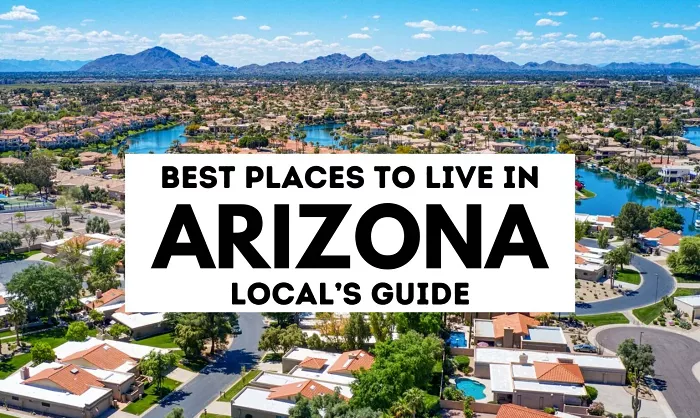Arizona, known for its stunning desert landscapes, vibrant cities, and rich cultural heritage, has become an increasingly popular destination for individuals and families seeking a new place to call home. Whether you’re considering relocating for work, retirement, or a change of scenery, it’s essential to evaluate various factors that contribute to the overall living experience. This comprehensive guide delves into the pros and cons of living in Arizona, providing insights to help you make an informed decision.
Climate and Weather
Abundant Sunshine
Arizona boasts an impressive average of over 300 sunny days per year, making it an ideal location for those who enjoy consistent sunshine. Cities like Phoenix and Tucson experience mild winters, allowing residents to partake in outdoor activities year-round.
Intense Summer Heat
While the abundance of sunshine is a perk, the summer months can bring extreme heat. Temperatures often exceed 100°F (38°C), particularly in southern cities. This intense heat may require adjustments in daily routines and increased energy consumption for cooling.
Cost of Living
Affordable Housing
Compared to states like California, Arizona offers more affordable housing options. The median home price in Arizona is lower than in neighboring states, making homeownership more accessible.
Lower Taxes
Arizona’s tax structure is relatively favorable. The state has lower property taxes compared to many other states, which can result in significant savings for homeowners.
Employment Opportunities
Growing Job Market
Arizona’s economy is diverse and expanding. Key industries include technology, healthcare, manufacturing, and education. Cities like Phoenix have become tech hubs, attracting companies and professionals. The state’s unemployment rate is relatively low, indicating a healthy job market.
Competitive Salaries
While the cost of living is lower, salaries in Arizona are competitive. This balance allows residents to enjoy a comfortable lifestyle without the financial strain often associated with higher-cost states.
Education and Healthcare
Quality Educational Institutions
Arizona is home to reputable universities and colleges. Institutions like Arizona State University and the University of Arizona offer a range of programs. Additionally, the state’s K-12 education system provides various public and private schooling options.
Access to Healthcare
The state boasts a robust healthcare system. Major hospitals and medical centers are located throughout Arizona, ensuring residents have access to quality medical care.
Outdoor Recreation
Diverse Natural Landscapes
Arizona’s diverse geography offers a plethora of outdoor activities. From hiking in the Grand Canyon to skiing in Flagstaff, residents have ample opportunities to explore nature.
Year-Round Activities
The state’s mild winters and sunny summers allow for year-round outdoor recreation. Whether it’s golfing, biking, or exploring national parks, there’s always an activity to enjoy.
Safety and Crime Rates
Varying Crime Rates
Crime rates in Arizona can vary significantly by location. While some areas experience higher crime rates, many communities are considered safe. It’s essential to research specific neighborhoods to understand the safety dynamics.
Community Initiatives
Many Arizona communities have implemented programs to enhance safety. Neighborhood watch groups and community policing efforts contribute to maintaining low crime rates in certain areas.
Cultural and Social Life
Rich Cultural Heritage
Arizona’s history is deeply rooted in Native American, Hispanic, and Western influences. This rich cultural tapestry is reflected in the state’s festivals, museums, and art galleries.
Active Social Scene
Cities like Phoenix and Tucson offer vibrant social scenes. From live music venues to diverse dining options, there’s always something happening.
Transportation and Infrastructure
Well-Developed Roadways
Arizona’s transportation infrastructure is well-developed. Major highways and interstates connect cities and towns, facilitating easy travel.
Public Transit Options
Urban areas like Phoenix and Tucson offer public transportation systems. Buses and light rail services provide residents with alternative commuting options.
Environmental Considerations
Water Conservation Efforts
Given Arizona’s arid climate, water conservation is a priority. Residents are encouraged to implement water-saving practices, and the state has regulations in place to manage water resources responsibly.
Renewable Energy Initiatives
Arizona is investing in renewable energy sources. The state’s abundant sunshine makes it ideal for solar energy projects, and many residents are adopting solar panels to reduce energy costs.
Conclusion
Arizona offers a unique blend of natural beauty, economic opportunities, and cultural richness. While the intense summer heat and varying crime rates may pose challenges, the state’s many advantages make it an attractive place to live. By considering individual preferences and priorities, prospective residents can determine if Arizona aligns with their lifestyle and aspirations.

